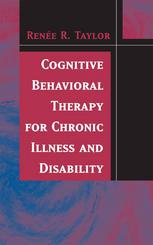

Most ebook files are in PDF format, so you can easily read them using various software such as Foxit Reader or directly on the Google Chrome browser.
Some ebook files are released by publishers in other formats such as .awz, .mobi, .epub, .fb2, etc. You may need to install specific software to read these formats on mobile/PC, such as Calibre.
Please read the tutorial at this link: https://ebookbell.com/faq
We offer FREE conversion to the popular formats you request; however, this may take some time. Therefore, right after payment, please email us, and we will try to provide the service as quickly as possible.
For some exceptional file formats or broken links (if any), please refrain from opening any disputes. Instead, email us first, and we will try to assist within a maximum of 6 hours.
EbookBell Team

4.3
98 reviewsSevere pain, debilitating fatigue, sleep disruption, severe gastrointestinal distress – these hallmarks of chronic illness complicate treatment as surely as they disrupt patients’ lives, in no small part because of the overlap between biological pathology and resulting psychological distress. Cognitive Behavioral Therapy for Chronic Illness and Disability cuts across formal diagnostic categories to apply proven therapeutic techniques to potentially devastating conditions, from first assessment to end of treatment.
Four extended clinical case examples of patients with chronic fatigue, rheumatoid arthritis, inoperable cancer, and Crohn’s disease are used throughout the book to demonstrate how cognitive-behavioral interventions can be used to effectively address ongoing medical stressors and their attendant depression, anxiety, and quality-of-life concerns. At the same time, they highlight specific patient and therapist challenges commonly associated with chronic conditions.
From implementing core CBT strategies to ensuring medication compliance, Renee Taylor offers professionals insights for synthesizing therapeutic knowledge with practical understanding of chronic disease. Her nuanced client portraits also show how individual patients can vary—even within themselves.
This book offers clinicians invaluable help with
- Conceptualizing patient problems
- Developing the therapeutic relationship
- Pacing of therapy
- Cognitive restructuring
- Behavioral modification
- Problem solving
- Fostering coping and adapting skills
Taylor’s coverage is both clean and hands-on, with helpful assessments and therapy worksheets for quick reference. Cognitive Behavioral Therapy for Chronic Illness and Disability gives practitioners of CBT new insights into this population and provides newer practitioners with vital tools and tactics. All therapists will benefit as their clients can gain new confidence and regain control of their lives.